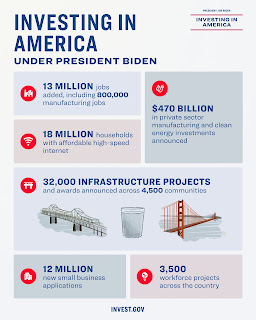PUSH FOR BALTIMORE INCLUSIONARY HOUSING LEGISLATION CONTINUES
The Baltimore Inclusionary Housing Coalition is continuing to lobby for a vote on a Baltimore City Council bill that would require affordable housing units to be created in certain residential projects. There are more than 20 organizations in the Coalition, which has been working on the inclusionary housing bill since before the 2007 expiration of an inclusionary housing policy.
The nonpartisan Coalition was formed by the Baltimore Branch of the NAACP, Baltimore Renters United, Beyond the Boundaries, BRIDGE Maryland, Inc., Citizens Planning and Housing Association (CPHA), Community Development Network, SEIU 1199, and the Public Justice Center (PJC), among numerous other Baltimore area nonprofit and community organizations, volunteers, and City Councilwoman Odette Ramos (District 14).
Council Bill 22-0195 is one of the two bills the coalition is advocating for. It would “eliminate the loopholes and waivers in the prior inclusionary housing law that made it a failure,” according to a webpage by the League of Women Voters of Baltimore City, a member of the coalition. The bill would require developers to set aside 10 percent of units as affordable housing in residential projects that receive city funding or rezoning and have greater than 20 units. Affordable is defined as a household earning less than 60% of Area Median Income (about $55,740 for a family of two) would pay rent that is no more than 30% of their income.
Courtney Jenkins, President of the
Metropolitan Baltimore AFL-CIO, has said that with the average cost of housing in the City being around $1,200 monthly, renters are paying about $15,000 yearly on housing. Since 54% of Baltimoreans make less than $60,000 annually, housing costs are at least 25% of their income, if not more, he said. The
National Equity Analysis estimates that more than 20,000 households in Baltimore City are behind on rent. Lack of access to affordable housing and an overabundance of inadequate housing especially hits people of color.
There have been five hearings and 30 amendments to CB 22-0195 since its introduction in February 2022. The Coalition deplored the fact that the proposed law has not yet been brought before the full council for a vote. “I think any other amendments are active[ly] delaying this even further,” said Loraine Arikat, a member of the 1199SEIU Maryland/DC division, a union that represents healthcare workers. Once the law is passed, it will not go into effect immediately. The proposed law grants a six-month grace period before it goes into effect. That buffer gives time to gather advisory board appointees.
The Historic Sharp Leadenhall Community Association agrees with the Coalition that something has to be done immediately: “We cannot continue to have families not have decent shelter. We cannot continue not to have access to affordable food. We cannot continue to accept this as a people.”
The last inclusionary housing policy was passed in 2007 and expired in June 2022, according to an inclusionary housing study commissioned by the Baltimore City Department of Housing & Community Development and completed by Enterprise Community Partners. That policy solely led to the development of 34 affordable housing units due to loopholes and waivers. City Council President Nick Mosby said the proposed CB 22-0195 must create as many inclusionary housing units as possible across the whole city. At a Coalition rally, He said, “No matter your ZIP code, your socioeconomic status, new buildings - new quality buildings with affordable units - should be able to be available to you. You should have quality development in communities that you’re most comfortable with, that you have cultural competency with, and that you wanna grow and stay growing in age in.”
In 2021, Mosby introduced a legislative package “House Baltimore” to provide low-income residents with opportunities to buy and rehabilitate existing Baltimore homes. Advocates heavily criticized it, and he apologized after a hearing to discuss the bill ended chaotically.
Ramos has said she understands activists’ impatience but wants the bill to be done correctly. Although she said the bill has support from the Council, as of today there is not a date set for the vote.
If approved, C 22-0195 will create an advisory board that must approve the developers’ plans before they can obtain a permit. The advisory board will ensure the enforcement of the program. Members will be appointed by Mayor Brandon Scott, according to Matt Hill, an attorney for the Public Justice Center, a legal advocacy group and coalition member. Developers would not receive their subsidy until after completing the reporting procedures required by the bill. This is to make sure that too much subsidy might be going to the developers. The coalition will likely make recommendations for the board to the mayor, Hill said.
Another City Council bill, CB 23-0369, is coupled with the inclusionary housing policy to create a high-performance inclusionary housing tax credit. The tax credit would give eligible property owners a 15% abatement of city property tax.
For more information and to support the proposed law, the public can go to the Action Network's dedicated page.
Read the November 3, 2023 Baltimore Beat article.



















